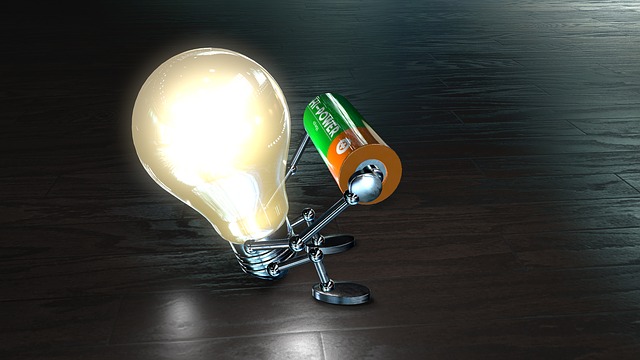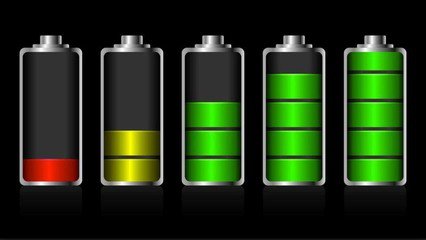Large Li Ion Battery Packs-Large Power Battery Analysis
Mar 10, 2020 Pageview:1769
About ten years ago, large banks of lithium-ion batteries were still largely unknown. It is now somewhat difficult to completely list the variety of applications for which they are used. On ships for instance, where these batteries were not used those days, we now see battery banks of about 1 to 5 MWh. There are autonomous underwater vehicles, buses and mining trucks that can be powered with a lithium-ion power bank of up to 350 kWh. But the biggest applications of these lithium-ion batteries are in stationed applications or machinery.
In the relatively new market for the very large and ground-based lithium-ion batteries, they can be used for things like grid peak shaving. For such applications, weight is not of primary concern, although volume may matter, it is battery life and not cost that counts the most. Other important things are reliability and performance. For instance, Toshiba serves this market using its titanium dioxide anodes, which give the lithium-ion cycle good durability. Applications also include balancing and backup power supplies in case of a grid power outage.
Does lithium-ion battery park have large power?
The very short and direct answer to that is yes. Lithium-ion batteries do not only have large power capacity, but they are also very safe. There are high-performance lithium-ion batteries that may last up to 1 million miles, (developed by the team from Penn State's Battery and energy storage Technology Center -Best).
As for the Electric vehicle batteries, there is generally a requirement for a compromise between the safety and its energy density. For batteries with a high energy and power density, such type of battery is required for uphill driving, or for merging on a freeway. However, there is a possibility the battery may catch fire or explode in poor conditions. However, batteries with low energy/power density tend to have a high-security issue and they are even prone to poor performance. So, there is no material that can conveniently do both. For this reason, battery technicians choose performance over safety.
How much power can a lithium-ion battery hold?
One of the numerous reasons’ lithium-ion batteries are popular is because they have quite a several very important advantages over their competing technologies:
These batteries are generally much lighter than a lot of the other types of rechargeable batteries, even those of the same size. The batteries are made of electrodes that are made of light lithium and carbon. Also, lithium is a very reactive element, which means that a lot of energy can be stored in the atomic bonds of the element. This leads to very high energy densities for lithium-ion batteries. This is a way you can get a perspective into the energy density of lithium-ion batteries. The typical lithium-ion battery can store about 150 watt-hours of electricity in 1 kilogram of battery. NiMH batteries (nickel-metal hydride) battery can store about 100 watts hours per kilogram, although it is more typical to see batteries of about 60 to 70 watts per hour.
The power capacity of a battery represents the amount of electrical energy stored in the battery. The power most often is expressed in watt-hours (Wh is the symbol). One Watt-hour represents the voltage (V) supplied by the battery multiplied by the amount of current (ampere) that the battery can supply over a certain period (usually in hours). Voltage X Amp X hours = Wh.
Because the voltage of a type of battery is generally fixed, as a result of its internal chemistry (whether it is alkaline, lead-acid, lithium, etc.) most times, only the Amps X hour measured is printed on the side of the battery and expressed in mAh or Ah (1000 mAh = 1 Ah).
Is there a better battery than lithium-ion?
Every day, smart homes are becoming even more popular, as well as wearables, and we can’t have enough of our Smartphones. These devices are evolving, but are still limited because of the power needed. There hasn’t been too much of an advancement in battery technology over the decades, but we are not where we were 20 years ago. And now, we are on the brink of a power revolution.
Visionaries of Clean energy have long held to the belief that our world needs a better battery that can help sell electric cars to skeptical consumers as well as manage the grids on renewable energy. However, the battery we will be using in the future (the battery of the future), at least for the next decade, will surely be the battery of the past.
Though modest, lithium-ion battery has gained such an advantage in the market that competing technologies will find it very difficult to catch up. This lead and advantage will only get even more pronounced if the proposed new lithium-ion battery factories start functioning in the next half-decade.
Batteries are coming from the factories in China, the United States, Thailand, and other countries, and these will further crash the prices of lithium-ion batteries. Remember, these batteries have already dropped in price for about 85% since 2010. And the billions being spent on factories will help bring about a strong incentive for the industry to continue to improve on lithium-ion technology and to do so gradually, rather than to go into a new type of battery.
There are many startups, but their focus is now on upgrading and improving on lithium-ion batteries and not on competing with it directly. According to Erik Terjesen, senior director of licenses and strategy at Ionic Materials Inc, "We don't expect lithium-ion batteries to be disrupted”
There have been many alternatives, from flow to flywheel batteries, and there will be more, but none have grown to the height or standard of lithium-ion batteries, and none have been widely used as it. And this is because the market and consumers feel more comfortable with lithium-ion batteries.
For flexibility, price and safety, lithium-ion batteries are widely used, and there is no sign of lithium-ion batteries slowing down in its acceptability on the market.
- Prev Article: Convert lead acid battery to lithium Replacement and Charging
- Next Article: Largest Lipo Battery-Cycle Life and Power
Leave Message
Hottest Categories
-
Hottest Industry News
-
Latest Industry News
















